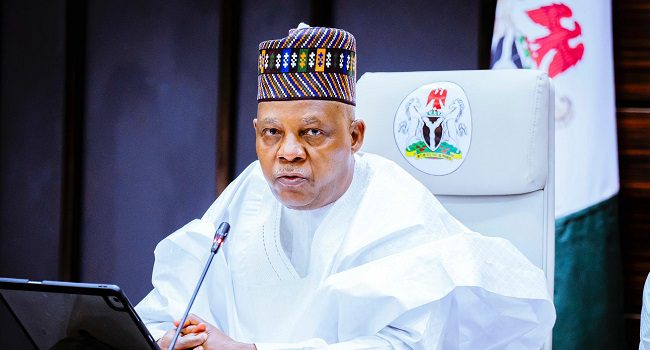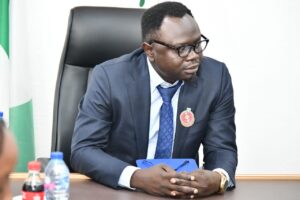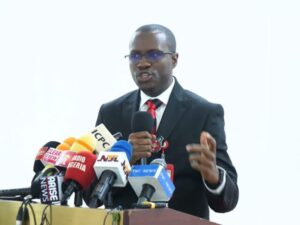
NEC pushes for withdrawal of Tax Reform Bill, electricity decentralization
…Electricity decentralisation will end national grid collapse — VP Shettima
…As FG launches ‘Disclosure Scheme’ for financial sector transparency
…25 million Nigerians benefitting from federal social protection initiatives — Edun
By Our Correspondents
In a pivotal meeting on Thursday at the Presidential Villa in Abuja, the National Economic Council (NEC) recommended the withdrawal of the current Tax Reform Bill from the National Assembly in order to pave the way for more comprehensive consultation and consensus-building among key stakeholders.
Making the recommendation in response to a presentation by the Chairman of the Presidential Fiscal Policy and Tax Reforms Committee, Mr. Taiwo Oyedele, the Council called for more extensive consultation with stakeholders to align on the far-reaching impacts of the proposed tax reforms.
This is coming just as Vice President Kashim Shettima announced that NEC will adopt measures to speed up the decentralisation of the national grid, with a view to putting an end to incessant collapse that has plunged some states in the North into total darkness.
He listed some of the measures for the decentralisation of the national grid to include the establishment of mini-grids, solar and renewable energy sources like solar photovoltaic and wind turbines.
Speaking at the 145th NEC meeting, Senator Shettima who is the Chairman of NEC said the burden of accountability has compelled the government to never look away from these issues.
He stressed the urgent need for the implementation of the Nigeria Energy Sector Implementation Plan (NESIP), emphasising that the energy sector must embrace the potential of renewable energy, as well as leverage solar and mini-grid solutions designed to meet regional electricity demands.
The VP said, “A robust economy is the backbone of every nation. The recent blackouts caused by the actions of vandals remind us of our urgent need to expand our energy infrastructure. I believe the governors here would agree that the decentralisation of electricity is our path forward.
“We will continue to promote the constitutional framework that empowers constituent states within the Nigerian federation to generate, transmit, and distribute electricity in areas covered by the national grid. Together, we can make instability a relic of the past.
“Furthermore, our energy sector must embrace the potential of renewable energy. We must leverage solar and mini-grid solutions tailored to regional needs. I urge the Council to support the implementation of the Nigeria Energy Sector Implementation Plan (NESIP).
“If we capitalise on our diverse regional energy resources—from northern Nigeria’s solar potential to the south’s gas reserves—we can build a resilient, decentralised energy system that drives growth and empowers our communities.”
The Vice President also said the tax reforms initiated by President Bola Ahmed Tinubu’s Renewed Hope Administration will broaden the nation’s revenue base, foster economic stability, and diminish dependency on specific sectors.
“I must admit that the tax reforms initiated at the onset of this administration by His Excellency, President Bola Ahmed Tinubu, have opened avenues to address stakeholders’ concerns, particularly regarding VAT reform and its implications for sub-national revenues.
“As representatives of diverse interests, I have no doubt that you share a common aspiration: to broaden our revenue base, foster economic stability, and diminish our dependency on specific sectors,” he noted.
On Human Capital Index, VP Shettima cautioned that it is a tragedy that must be confronted following Nigeria’s low ranking.
“We grapple with alarming statistics related to life expectancy, maternal and child mortality, and educational attainment. We gather here today to redeem this dark reality through a series of deliberations and recommendations across various sectors, to be presented by participating specialists in government and by development partners,” he stated.
The VP further shed light on the progress made so far in the bid to mitigate flood disasters, noting that “the past few months have tested the durability of the solutions” implemented to advance flood resilience.
He continued: “Although the floods caught many of us off guard in various parts of the nation, our proactive mitigation efforts have inspired sustainable strategies to address the extensive damage caused, including significant property losses and health risks.
“I commend the Honourable Minister of Water Resources and the Director-General of National Emergency Management Agency (NEMA) for their foresight and swift action. Today invites us to reinforce our commitment to implementing approved mitigation measures, ensuring that states report their flood damages comprehensively, as outlined in our NEC Ad-hoc Committee report.”
In tandem with the tax reform discussions, the Minister of Finance and Coordinating Minister of the Economy, Mr. Wale Edun, briefed the Council on several key national accounts.
According to his report, the Excess Crude Account stands at $473,754.57, the Natural Resources Fund at N26,105,837,627.67, and the Stabilization Account at N36,299,452,763.62.
The Minister also updated NEC on current economic relief measures, with 25 million Nigerians benefitting from federal social protection initiatives, including digital outreach, microenterprise loans, and sector-specific support for power, agriculture, manufacturing, health, and compressed natural gas (CNG) initiatives.
Meanwhile, the Council equally addressed Nigeria’s flood crisis affecting 34 states, 217 local government areas, and over 1.3 million people. The Minister of Water Resources and Sanitation, Prof. Joseph Utsev reported 740,743 displaced individuals, 321 fatalities, and extensive property and farmland losses.
Council members resolved that the Ministry of Water Resources will conduct an integrity review of all waterways and dams across the country, and urged state governments that have not done so to immediately submit their flood reports, noting the Green Climate Fund should have an infrastructure resilience fund component, and that all MDAs should immediately implement flood resilience and adaptation mechanisms.
Amid these challenges, the NEC reviewed the World Bank-supported SOLID project — presented by the Minister of Budget and Economic Planning, Sen. Abubakar Atiku Bagudu — aimed at enhancing services and economic opportunities for internally displaced persons and host communities in northern Nigeria.
…As FG launches ‘Disclosure Scheme’ for financial sector transparency
In a strategic move to enhance financial transparency and strengthen the national economy, the Federal Government has announced the launch of the Foreign Currency Voluntary Disclosure, Depositing, Repatriation, and Investment Scheme, or ‘Disclosure Scheme.’
This announcement was made in a statement available to NewsDirect, signed by Director of Information and Public Relations at the Ministry of Finance, Mohammed Manga.
Honourable Minister of Finance, Wale Edun, stated that the program aims to formalise foreign currency assets held by Nigerians both domestically and abroad, encouraging their integration into the official financial system.
Created under Executive Order No. 15 of 2023 and the accompanying “Foreign Currency Disclosure, Deposit, Repatriation, and Investment Scheme Guidelines, 2024,” the Disclosure Scheme represents a significant step toward strengthening the country’s economic resilience.
“The Disclosure Scheme is a bold initiative aimed at bringing foreign currency held outside the formal financial system into the formal economy,” Edun stated during the launch event in Abuja on October 31, 2024.
He added, “It strengthens transparency and economic resilience, setting us on a path to rapid economic growth.”
The scheme is open to Nigerians with legitimately acquired foreign currency assets, allowing participants to voluntarily declare and deposit funds into designated domiciliary accounts at regulated banks. Once disclosed, these assets will become part of Nigeria’s formal financial ecosystem, which the government hopes will bolster economic stability.
According to the guidelines, participants will enjoy tax exemptions on disclosed assets, along with protections against asset seizure or forfeiture. Edun emphasised that the scheme will integrate foreign assets into Nigeria’s formal economy, promoting transparency and oversight.
By encouraging legitimate financial transactions, the initiative aims to reinforce Nigeria’s anti-money laundering (AML) and counter-financing of terrorism (CFT) protocols, aligning with global standards.
Participants will be exempt from tax audits or liabilities on disclosed funds and can repatriate their assets at any time at prevailing exchange rates. Furthermore, any interest accrued on funds deposited in designated subaccounts will be tax-free.
“The Disclosure Scheme will be open for nine months from its commencement date, giving Nigerians ample time to participate voluntarily. Designated banks, regulated by the Central Bank of Nigeria (CBN), will oversee the application process and ensure compliance with the scheme’s AML/CFT requirements.
This initiative aligns with President Bola Tinubu’s economic reforms, aiming to attract investment, foster growth, and build trust in Nigeria’s financial system. Together with the CBN and the Ministry of Justice, Edun emphasised the program’s focus on transparency and confidentiality for participants.
With this bold initiative, Nigeria hopes to secure its place as a transparent and resilient economy, in line with global best practices for financial integrity and security.




